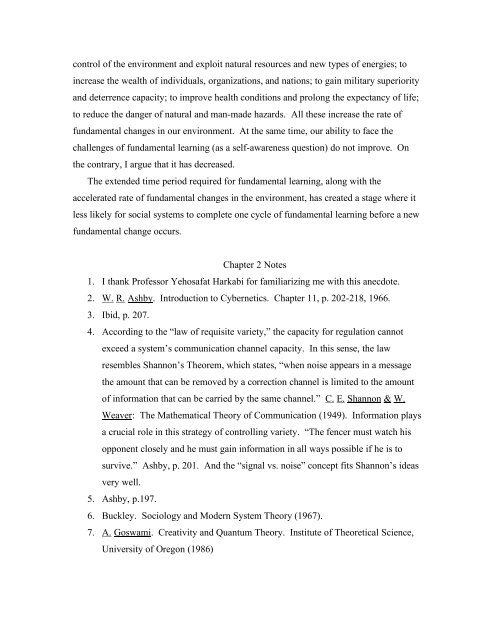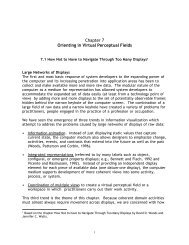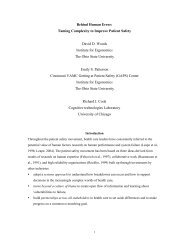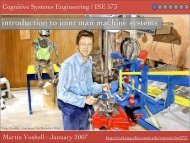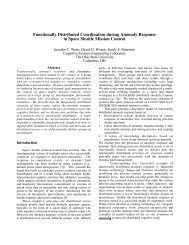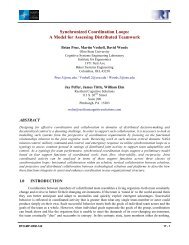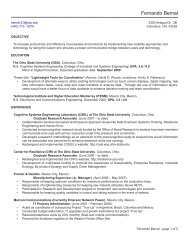Fundamental Surprises Zvi Lanir Decision Research 1201 Oak ...
Fundamental Surprises Zvi Lanir Decision Research 1201 Oak ...
Fundamental Surprises Zvi Lanir Decision Research 1201 Oak ...
- No tags were found...
You also want an ePaper? Increase the reach of your titles
YUMPU automatically turns print PDFs into web optimized ePapers that Google loves.
control of the environment and exploit natural resources and new types of energies; to<br />
increase the wealth of individuals, organizations, and nations; to gain military superiority<br />
and deterrence capacity; to improve health conditions and prolong the expectancy of life;<br />
to reduce the danger of natural and man-made hazards. All these increase the rate of<br />
fundamental changes in our environment. At the same time, our ability to face the<br />
challenges of fundamental learning (as a self-awareness question) do not improve. On<br />
the contrary, I argue that it has decreased.<br />
The extended time period required for fundamental learning, along with the<br />
accelerated rate of fundamental changes in the environment, has created a stage where it<br />
less likely for social systems to complete one cycle of fundamental learning before a new<br />
fundamental change occurs.<br />
Chapter 2 Notes<br />
1. I thank Professor Yehosafat Harkabi for familiarizing me with this anecdote.<br />
2. W. R. Ashby. Introduction to Cybernetics. Chapter 11, p. 202-218, 1966.<br />
3. Ibid, p. 207.<br />
4. According to the “law of requisite variety,” the capacity for regulation cannot<br />
exceed a system’s communication channel capacity. In this sense, the law<br />
resembles Shannon’s Theorem, which states, “when noise appears in a message<br />
the amount that can be removed by a correction channel is limited to the amount<br />
of information that can be carried by the same channel.” C. E. Shannon & W.<br />
Weaver: The Mathematical Theory of Communication (1949). Information plays<br />
a crucial role in this strategy of controlling variety. “The fencer must watch his<br />
opponent closely and he must gain information in all ways possible if he is to<br />
survive.” Ashby, p. 201. And the “signal vs. noise” concept fits Shannon’s ideas<br />
very well.<br />
5. Ashby, p.197.<br />
6. Buckley. Sociology and Modern System Theory (1967).<br />
7. A. Goswami. Creativity and Quantum Theory. Institute of Theoretical Science,<br />
University of Oregon (1986)


